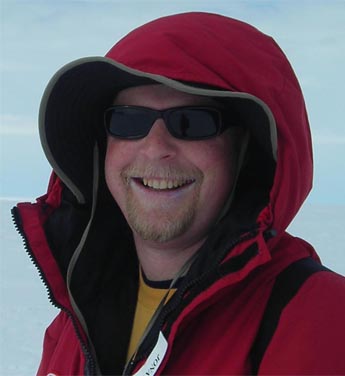Introduction to Sustainability | Coursera
Introduction to Sustainability | Coursera
This course introduces the academic discipline of sustainability and explores how today’s human societies can endure in the face of global change, ecosystem degradation and resource limitations.
 Dr. Jonathan Tomkin is the Associate Director of the School of Earth, Society and Environment and a research Associate Professor in the department of Geology at the University of Illinois Urbana-Champaign. Dr. Tomkin directs the undergraduate program in environmental sustainability at the University.
Dr. Jonathan Tomkin is the Associate Director of the School of Earth, Society and Environment and a research Associate Professor in the department of Geology at the University of Illinois Urbana-Champaign. Dr. Tomkin directs the undergraduate program in environmental sustainability at the University.
His research aims to uncover the processes of how changing climates, glaciers, and landscapes interact. This study has involved fieldwork all over the world - including the Olympic Mountains, the Swiss Alps, Patagonia and Antarctica. He is the co-editor and contributing author of the college textbook Sustainability: a comprehensive introduction.
This course introduces the academic discipline of sustainability and explores how today’s human societies can endure in the face of global change, ecosystem degradation and resource limitations.
About the Course
This course introduces the academic approach of Sustainability and explores how today’s human societies can endure in the face of global change, ecosystem degradation and resource limitations. The course focuses on key knowledge areas of sustainability theory and practice, including population, ecosystems, global change, energy, agriculture, water, environmental economics and policy, ethics, and cultural history.
This subject is of vital importance, seeking as it does to uncover the principles of the long-term welfare of all the peoples of the planet. As sustainability is a cross-disciplinary field of study, this foundation requires intellectual breadth: as I describe it in the class text, understanding our motivations requires the humanities, measuring the challenges of sustainability requires knowledge of the sciences (both natural and social), and building solutions requires technical insight into systems (such as provided by engineering, planning, and management).
About the Instructor(s)
 Dr. Jonathan Tomkin is the Associate Director of the School of Earth, Society and Environment and a research Associate Professor in the department of Geology at the University of Illinois Urbana-Champaign. Dr. Tomkin directs the undergraduate program in environmental sustainability at the University.
Dr. Jonathan Tomkin is the Associate Director of the School of Earth, Society and Environment and a research Associate Professor in the department of Geology at the University of Illinois Urbana-Champaign. Dr. Tomkin directs the undergraduate program in environmental sustainability at the University. His research aims to uncover the processes of how changing climates, glaciers, and landscapes interact. This study has involved fieldwork all over the world - including the Olympic Mountains, the Swiss Alps, Patagonia and Antarctica. He is the co-editor and contributing author of the college textbook Sustainability: a comprehensive introduction.
Course Syllabus
Week 1: Introduction. Pessimism vs. optimismNeo-malthusians, J-curves, S-curves and the IPAT equation
Week 2: Population. Demographics and the disappearance of the third world
Demographics, population trends
Demographics, population trends
Week 3: Tragedy of the Commons.
Fisheries, pastures, public vs private solutions
Week 4: Climate Change. The climate of the near future: hot, hotter, or hottest?
Weather vs. Climate, Proxy and data climate evidence, Climate projections
Week 5 : Energy. What happens when we reach “Peak Oil” Renewable energy: is there enough to make the switch?
Peak Oil/Fossil Fuel, Energy survey, availability, and density, EROI
Week 6: Agriculture and Water. Is there enough water and food for the 21st Century?
GMOs and the Green Revolution, water stocks and flows - physical and social constraints
Week 7: Environmental Economics and Policy. Can economists lead the way to sustainability?Environmental Evaluation, project and policy evaluation, Incentive policies
Week 8: Ethics and Culture and Measurement. The long view
Carbon Footprints, Energy and water efficiency metrics, Sustainability Ethics, Environmental ideology and conservation movements
Suggested Readings
The course will use a free, online textbook “Sustainability: a Comprehensive Foundation (Theis and Tomkin, Eds.)”. Participants can download the book as a pdf or html file (for laptops and computers) or as an epub file (for tablet readers) http://www.earth.illinois.edu/sustain/sustainability_text.html
Course Format
Each week of class consists of multiple 8-15 minute long lecture videos, integrated weekly quizzes, readings, an optional assignment and a discussion. Most weeks will also have a peer reviewed assignment, and there will be the opportunity to participate in a community wiki-project. There will be a comprehensive exam at the end of the course.
FAQ
- Will I get a certificate after completing this class? Participants who successfully complete the course will receive a certificate of completion from the School of Earth, Society and Environment.
- What resources will I need for this class? Got an up-to-date browser and a decent internet connection? You’re good to go!
- What is the coolest thing I'll learn if I take this class? We’ve just passed 7 billion people on the planet – but population growth isn’t the biggest threat to a prosperous global future.
Looking for more courses?
Browse our course explorer
Browse our course explorer
Comments
Post a Comment